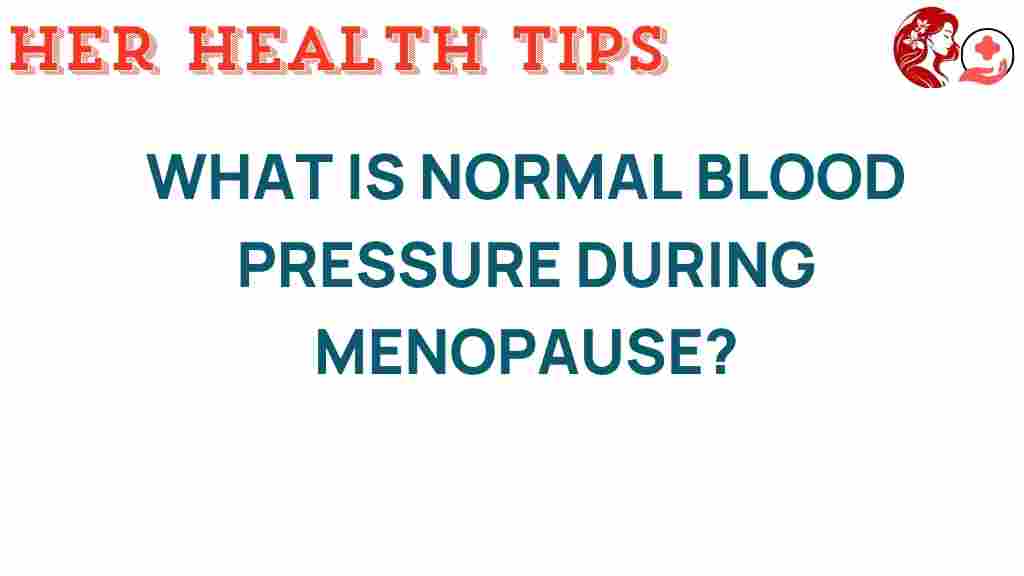Unraveling the Mystery of Blood Pressure During Menopause
Menopause is a natural phase in a woman’s life, marking the end of her reproductive years. This transition can bring about various changes in health and wellness, one of the most significant being fluctuations in blood pressure. Understanding how menopause affects blood pressure is crucial for maintaining overall women’s health and mitigating cardiovascular risk.
The Connection Between Hormones and Blood Pressure
During menopause, hormonal changes play a pivotal role in how a woman’s body functions. The primary hormones involved are estrogen and progesterone. These hormones influence various bodily systems, including the cardiovascular system.
- Estrogen: This hormone helps to maintain the flexibility of blood vessels, promoting healthy blood flow. A decrease in estrogen levels can lead to stiffening of the arteries, which may elevate blood pressure.
- Progesterone: This hormone can affect the body’s fluid balance and may contribute to higher blood pressure when levels drop.
As women approach menopause, the production of these hormones fluctuates, leading to various symptoms and potential health risks, including increased blood pressure.
Understanding Menopause Symptoms and Their Impact on Blood Pressure
Menopause is not just about the cessation of menstruation; it encompasses a range of symptoms that can impact overall health. Some common symptoms include:
- Hot flashes
- Night sweats
- Mood swings
- Weight gain
- Sleep disturbances
These symptoms can indirectly affect blood pressure in several ways:
- Stress and Anxiety: Mood swings and anxiety can elevate stress hormones, leading to temporary spikes in blood pressure.
- Weight Gain: Hormonal changes can lead to weight gain, particularly around the abdomen, which is a significant risk factor for hypertension.
- Poor Sleep: Sleep disturbances can lead to fatigue and increased stress levels, which can also affect blood pressure.
Fluctuations in Blood Pressure: What to Expect
During menopause, women may experience fluctuations in their blood pressure. These fluctuations can manifest as:
- Transient High Blood Pressure: Some women may experience temporary increases in blood pressure during stressful moments, hot flashes, or due to other menopausal symptoms.
- Consistently Elevated Blood Pressure: For some, especially those with a family history of hypertension, menopause can lead to sustained high blood pressure.
Monitoring blood pressure during this time is essential to identify any concerning trends that could indicate a risk for serious health issues.
Cardiovascular Risk and Women’s Health Post-Menopause
The decline in estrogen levels during menopause is linked to an increased risk of cardiovascular disease. Women’s health can be significantly affected, and understanding these risks is vital:
- Increased blood pressure can lead to heart disease.
- Post-menopausal women are at a higher risk for stroke.
- There may be a higher incidence of heart attacks in women post-menopause compared to pre-menopausal women.
To mitigate these risks, women should focus on maintaining a healthy lifestyle, including regular exercise, a balanced diet, and routine health check-ups.
Steps to Manage Blood Pressure During Menopause
Managing blood pressure during menopause involves a holistic approach to health and wellness. Here are some steps to consider:
1. Regular Monitoring
Keep track of your blood pressure regularly. Home monitors are available, and it’s advisable to visit a healthcare provider for professional readings.
2. Healthy Diet
Focus on a diet rich in:
- Fruits and vegetables
- Whole grains
- Lean proteins
- Low-fat dairy
Reducing salt intake and avoiding processed foods can also help maintain a healthy blood pressure.
3. Regular Exercise
Engaging in physical activity can help control weight and lower blood pressure. Aim for at least 150 minutes of moderate aerobic activity each week.
4. Manage Stress
Incorporate stress-reducing techniques such as:
- Yoga
- Meditation
- Deep breathing exercises
5. Medication and Supplements
Consult with a healthcare provider about the appropriateness of medications or supplements that can help manage blood pressure and alleviate menopausal symptoms.
Troubleshooting Common Issues
Despite best efforts, some women may still experience challenges with managing blood pressure during menopause. Here are some troubleshooting tips:
1. If Blood Pressure Remains High
If you notice consistent high readings, consult a healthcare provider. They may recommend lifestyle changes or medication.
2. If Experiencing Symptoms of Anxiety or Depression
Seek support from mental health professionals. Therapy, counseling, or medications may be beneficial.
3. If Weight Gain Is Uncontrollable
Consult a nutritionist to develop a sustainable eating plan that addresses menopausal weight gain.
4. If Sleep Issues Persist
Implement good sleep hygiene practices. If problems continue, speak to a doctor about possible solutions.
Conclusion
Understanding the intricate relationship between blood pressure and menopause is crucial for every woman. The fluctuations in hormones during this phase can lead to changes in blood pressure, impacting overall women’s health and increasing cardiovascular risk. By adopting a proactive approach to health and wellness, including regular monitoring, a healthy diet, exercise, and stress management, women can mitigate these risks and enhance their quality of life during and after menopause. Remember, it’s essential to work closely with healthcare providers to navigate this transition smoothly.
For more information on managing menopause symptoms, visit this resource. For further reading on women’s health and cardiovascular risk, you can check this article.
This article is in the category Reproductive and created by HerHealthTips Team
